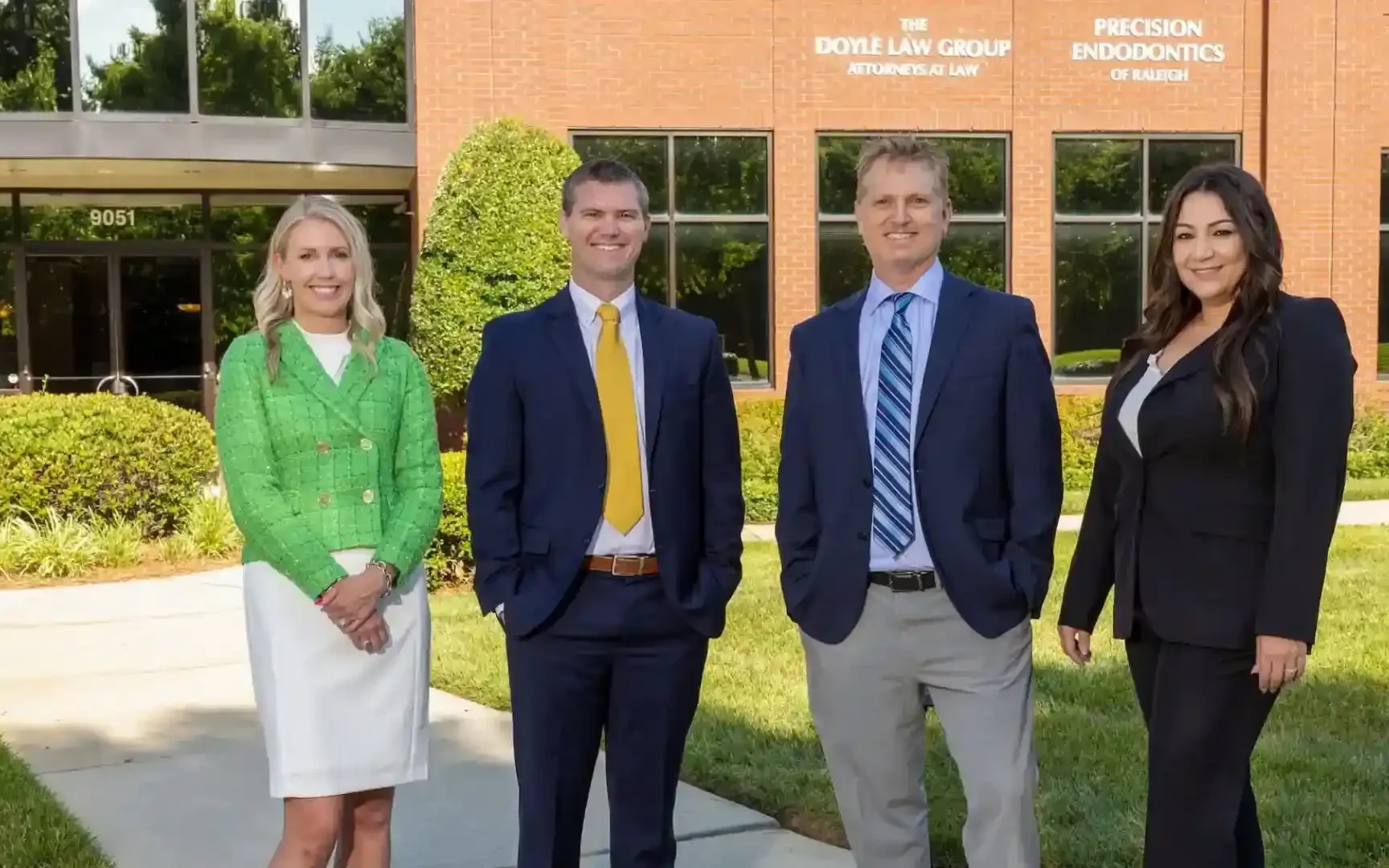If you currently receive or pay child support and are considering remarriage after divorce, whether…
Navigating the complexities of divorce and child custody can be a challenging and emotional journey. At Doyle Divorce Law, our child custody attorneys understand the importance of providing our clients with the knowledge and support they need during this difficult time.
Whether you are contemplating divorce, in the midst of custody proceedings, or simply seeking information about this legal terrain, we hope to serve you a valuable resource for obtaining sole custody of your child or children in North Carolina. Let us help you in securing the best outcome for your child's future.

What is Sole Custody?
Sole custody, in the context of child custody arrangements, is a legal term that designates one parent as the primary custodial parent, granting them exclusive rights and responsibilities for making important decisions on behalf of their child or children. This means that the parent with sole custody has the authority to make choices about the child's education, healthcare, religion, and other significant aspects of a child's welfare without the need for constant consultation or agreement with the non-custodial parent.
Sole Legal Custody
In this arrangement, one parent is granted sole authority to make all significant decisions regarding the child's upbringing. This includes decisions about education, healthcare, religion, and extracurricular activities. The non-custodial parent may have limited or no say in these matters.
Sole Physical Custody
Sole physical custody means the child primarily resides with one parent, who is responsible for the child's life through daily care, housing, and well-being. The non-custodial parent may have visitation rights or scheduled parenting time, but the child's main residence is with the custodial parent.
Sole Custody with Visitation
This arrangement grants one parent sole legal and physical custody of a child while allowing the non-custodial parent specific visitation rights or parenting time. The visitation schedule can vary, and it may be supervised or unsupervised, depending on the circumstances.
Factors Considered in Sole Custody Determination
When courts are tasked with determining sole custody in child custody cases, they consider a variety of factors to ensure the child's best interests are met. Some key factors that influence the court's decision include the following.
Child's Age and Developmental Needs
The court assesses the child's age and developmental stage to determine what custody arrangement will best serve their physical, emotional, and psychological needs.
Parental Fitness
The physical and mental health of each parent is a significant factor. Courts want to ensure that the custodial parent can provide a safe and nurturing environment for the child.
Child's Preference
In some cases, especially as children get older, their preferences may be considered by the court. The weight given to a child's preference depends on their age and maturity.
Stability and Continuity
The court assesses which parent can offer a stable and consistent living environment for the child, taking into account factors such as school, community, and social relationships.
Parenting Skills
Courts evaluate each parent's ability to meet the child's physical, emotional, and developmental needs. This includes their capacity to facilitate the child's relationship with the other parent.
Best Interest of the Child
The "best interests of the child" standard is a fundamental principle in child custody decisions. It serves as the guiding principle for courts, emphasizing that the ultimate goal is to provide the child with the most advantageous living and upbringing situation. This standard requires courts to consider various factors, as mentioned earlier, to determine what arrangement will promote the child's well-being, safety, and development.
Significantly, the best interests of the child standard prioritizes the child's needs above those of either parent. It encourages decisions that maintain the child's emotional and psychological well-being and promote a healthy relationship with both parents, whenever possible.
Evidence of Abuse or Neglect
If one parent has a history of abuse or neglect towards the child, this can strongly sway the court toward granting sole custody to the other parent.
Stability and Routine
A parent who can demonstrate a stable living environment and consistent routines that benefit the child may have an advantage.
Cooperation and Communication
Courts often favor parents who can demonstrate a willingness to cooperate and communicate effectively with each other for the child's benefit.
Criminal History or Substance Abuse
A parent with a criminal history or substance abuse issues may be less likely to receive sole custody, especially without evidence of rehabilitation.

The Role of Legal Representation in Sole Custody Cases
When it comes to matters as crucial and sensitive as child custody, having an experienced family law attorney by your side is not just advisable but often essential. The intricacies of family law can be daunting, and the legal system can be complex to navigate, especially when emotions run high. Here's why it’s important not to file for sole custody without a lawyer.
Legal Expertise
Family law attorneys specialize in the nuances of child custody cases, as well as child support agreements, and are well-versed in the laws and regulations specific to your jurisdiction. They can interpret the law to your advantage and ensure your rights are protected.
Objective Advice
An attorney can provide you with objective advice, helping you make informed decisions during an emotionally charged time. They can guide you toward solutions that are in the best interests of both you and your child.
Effective Negotiation
Family law attorneys are skilled negotiators who can engage with the other party or their legal representation to reach amicable agreements. This can often lead to faster and less contentious resolutions.
Courtroom Advocacy
If a custody case does go to court, your attorney will advocate on your behalf, presenting a compelling case to the judge and fighting for your parental rights and your child's best interests.

The Process of Obtaining Sole Custody in NC
Pursuing sole custody in North Carolina involves a series of legal and administrative steps. Here is a general outline of the process of filing for sole custody of a child in NC.
Consultation with an Attorney
The first step is to consult with an experienced family law attorney like those at Doyle Divorce Law. Your attorney will assess your case, provide legal advice, and help you understand your rights and options.
Filing a Custody Action
To initiate the process, the custodial parent must file a custody action in the appropriate North Carolina court. The action outlines the request for sole custody and may include supporting documentation.
Serving Legal Documents
Once filed, the non-custodial parent must be served with legal documents, notifying them of the custody action and providing an opportunity to respond.
Mediation or Negotiation
In many cases, parents are required to attempt mediation or negotiation to reach a custody agreement outside of court. This process can involve both parties and their attorneys, a neutral mediator, or a collaborative law approach.
Custody Evaluation
If an agreement cannot be reached, the court may order a custody evaluation. A trained professional will assess each parent's ability to meet the child's needs and make a recommendation to the court.
Court Hearing
If mediation or negotiation fails, a court hearing is scheduled. Both parties present their cases, including evidence and witness testimonies. The judge will then make a decision based on the best interests of the child.
Court Order
If the judge grants sole custody to one parent, a court order outlining the custody arrangement and visitation rights is issued. Both parents are legally obligated to adhere to the terms of the order.
Contact Our Child Custody Attorneys in Raleigh Today
If you find yourself facing child custody challenges or have questions about the best path forward for your family, don't hesitate to reach out to our dedicated family law attorneys at Doyle Divorce Law in Raleigh today. We are here to provide you with the guidance, support, and legal expertise you need to navigate these complex matters successfully.
Your child's well-being is our top priority, and we are committed to helping you secure the best possible outcome for your family.
Contact us today to schedule a consultation by calling us at (919) 301-8843 or filling out the form below to get started.



